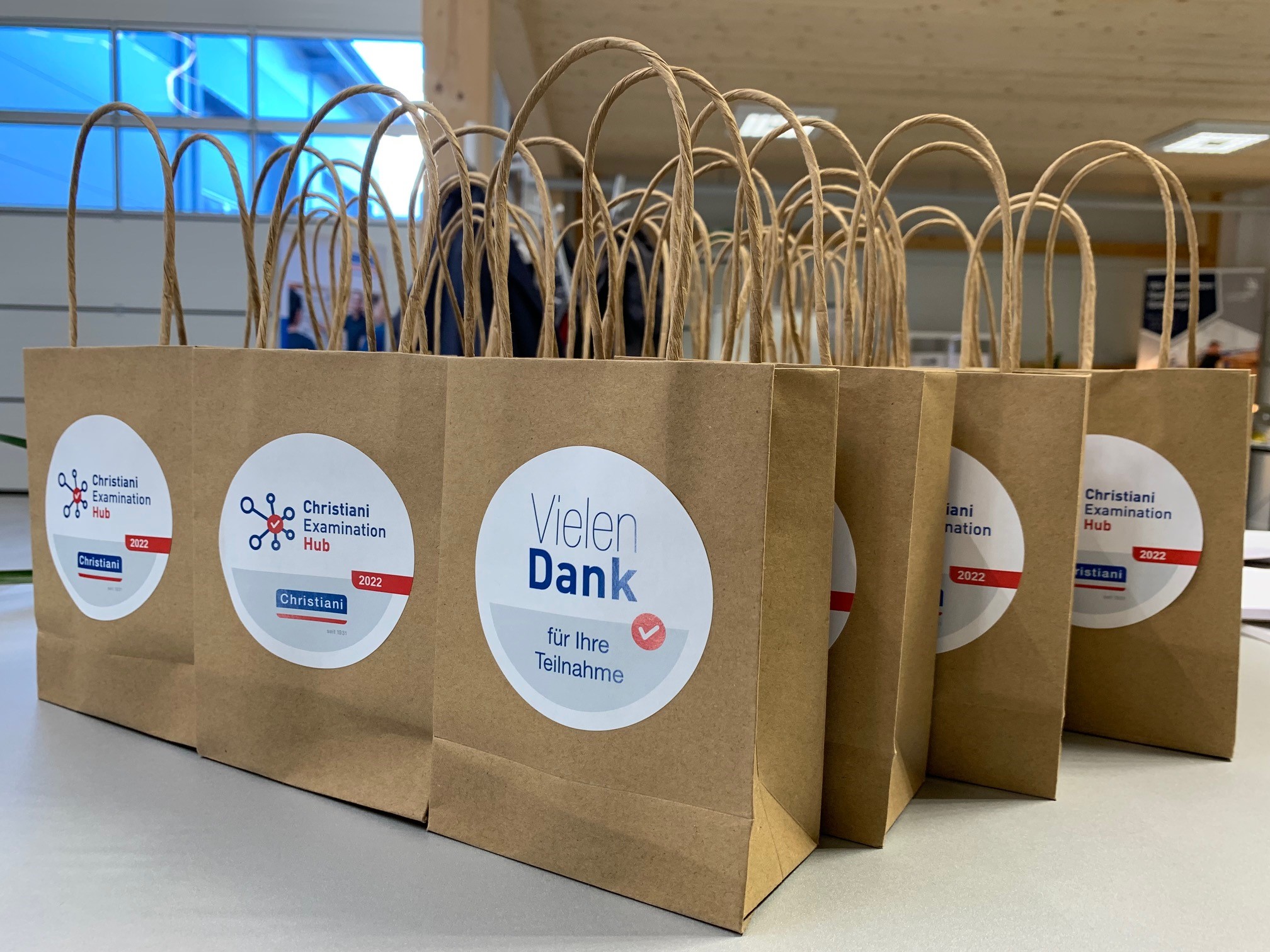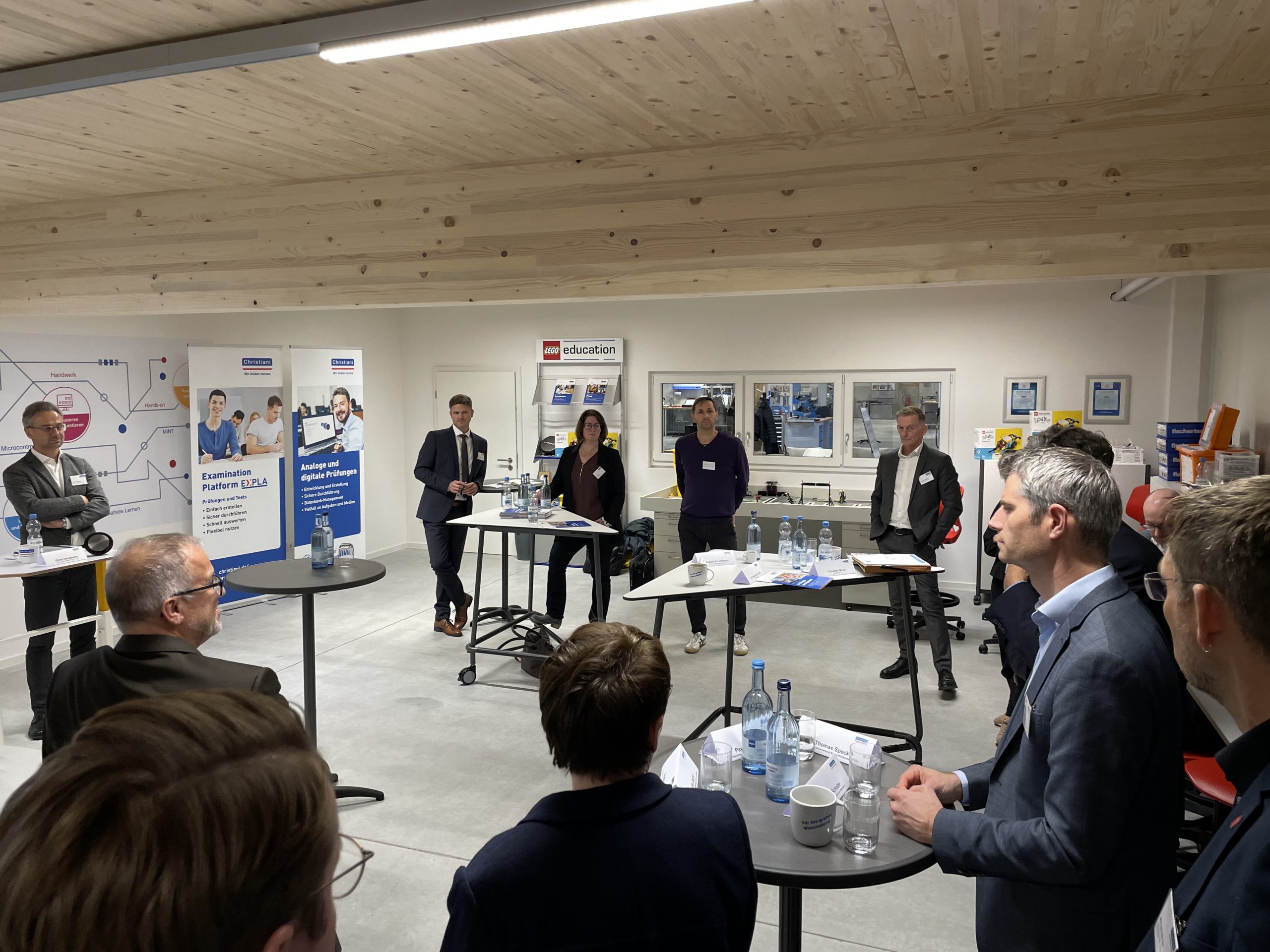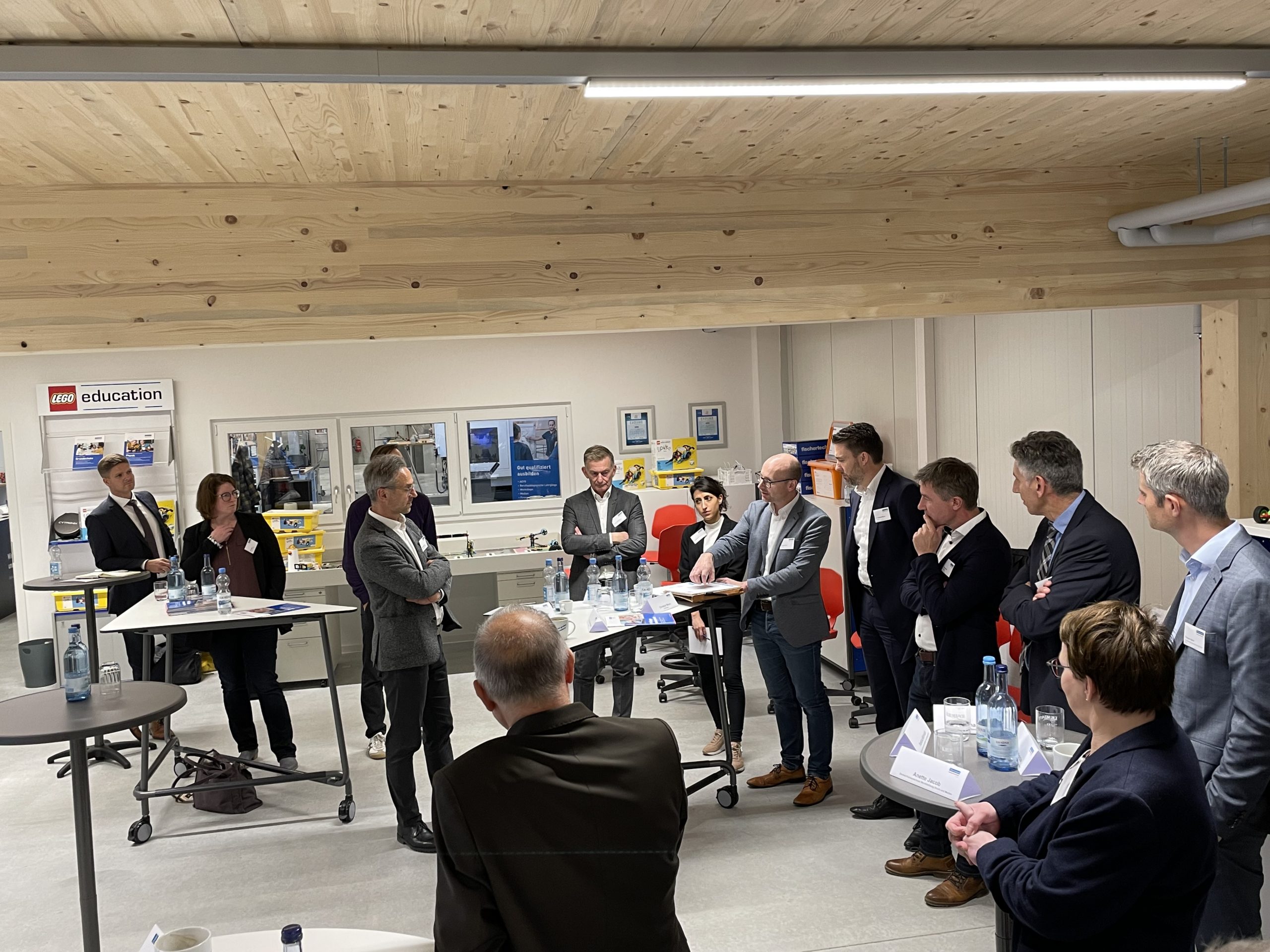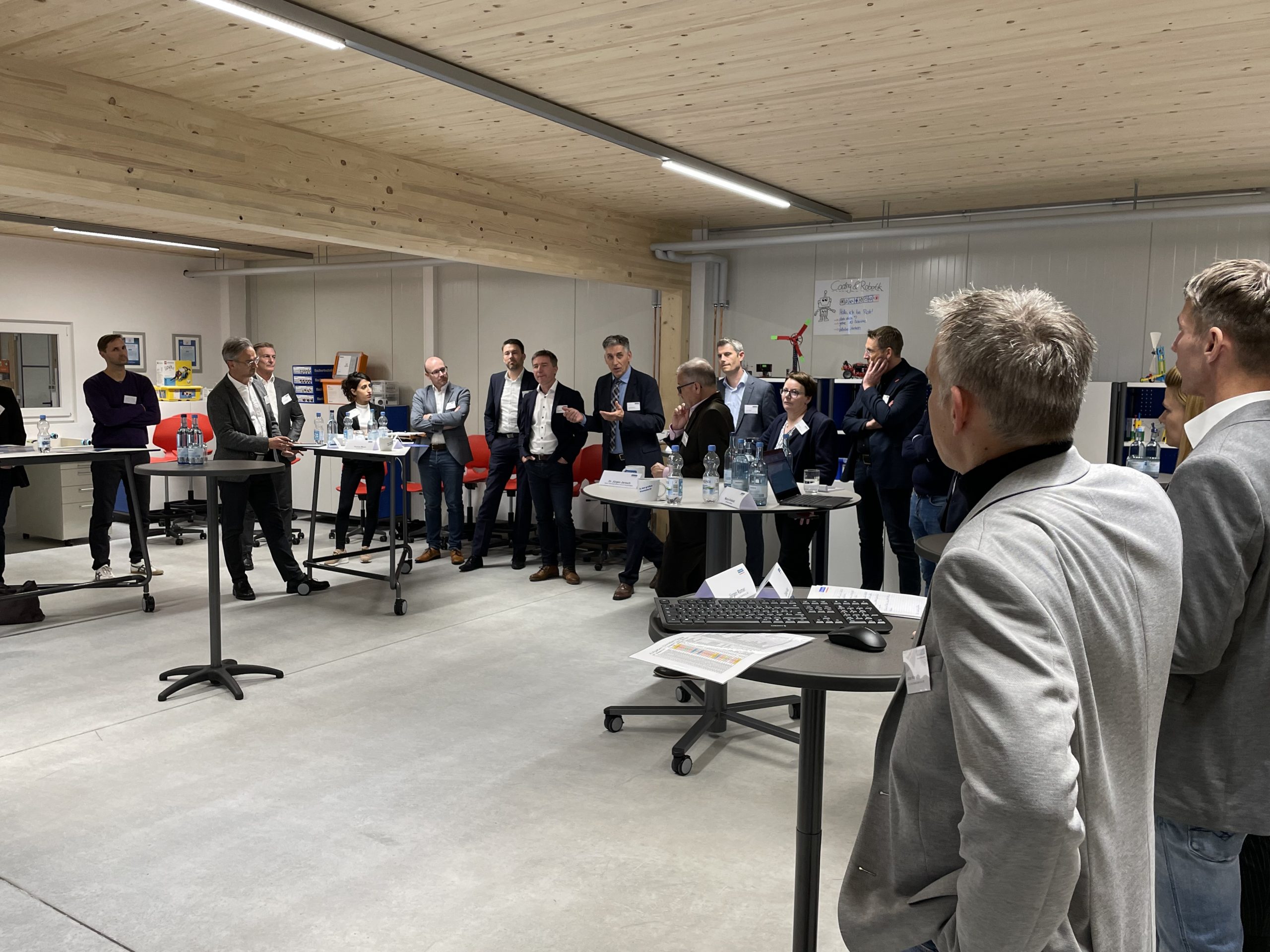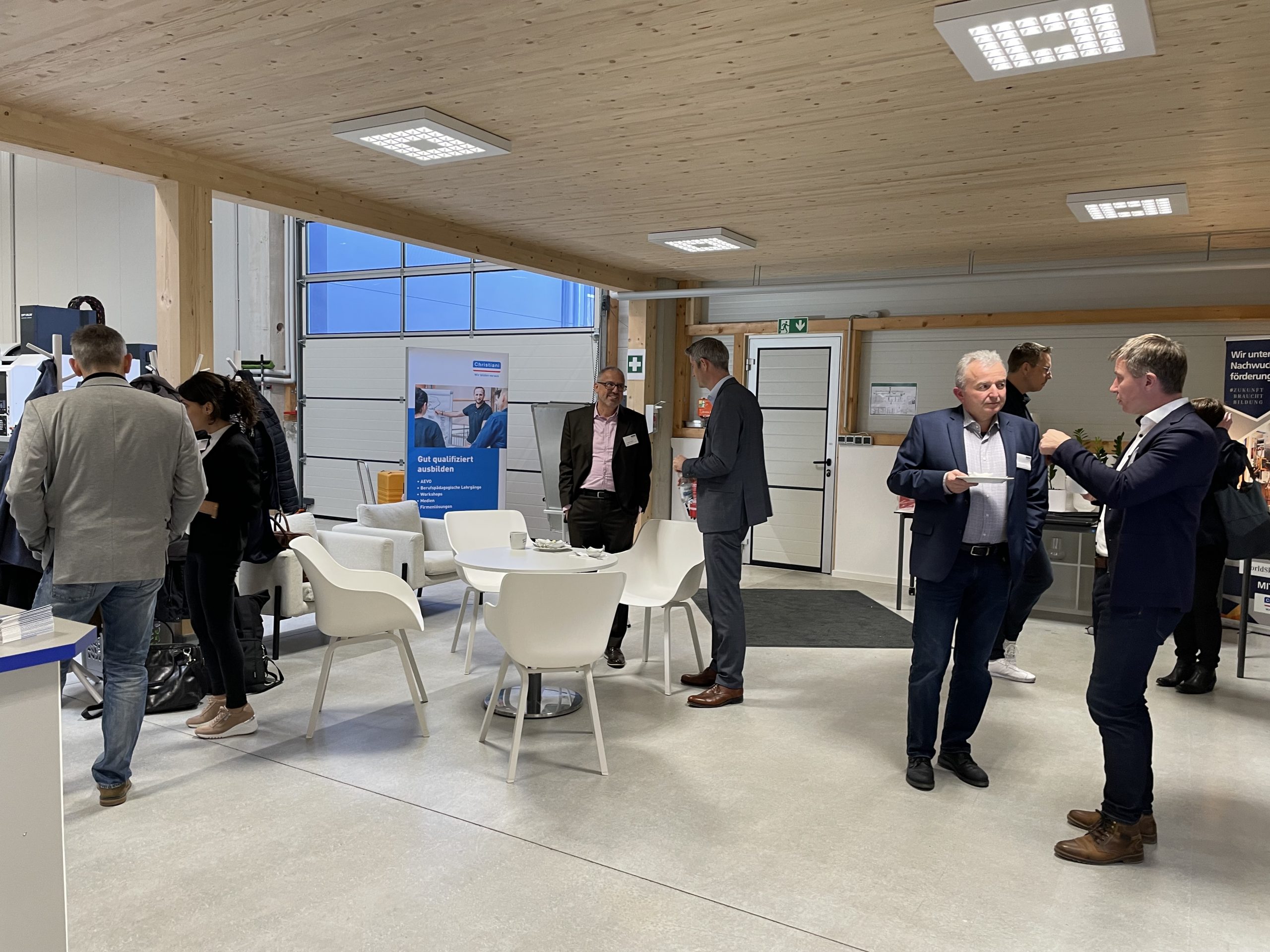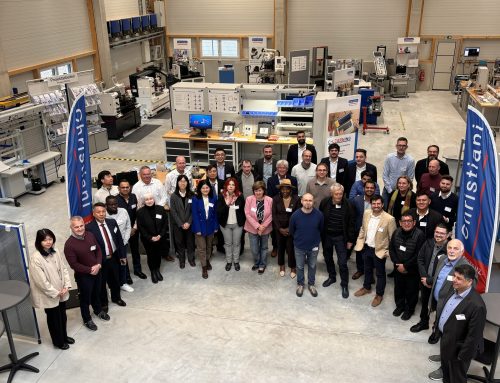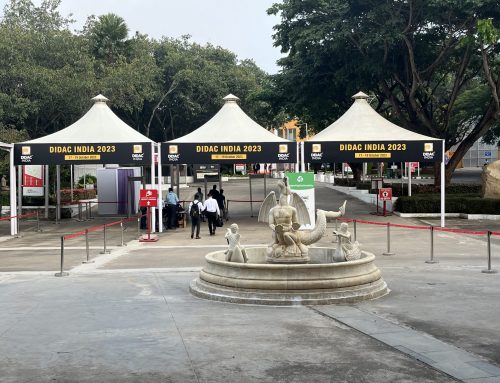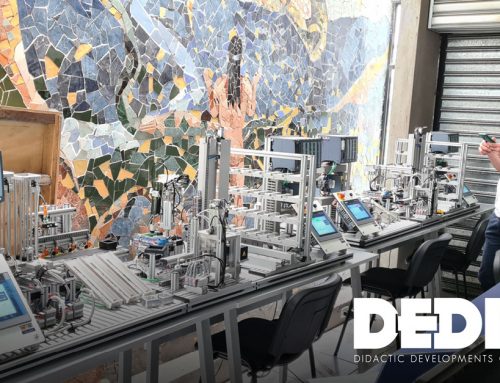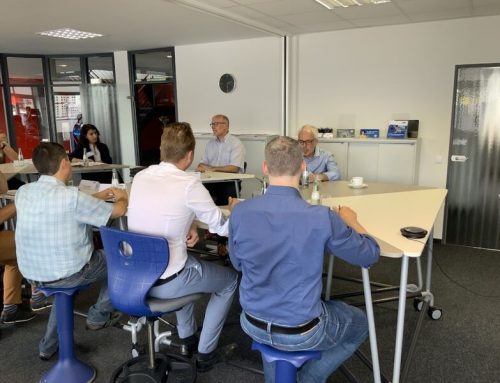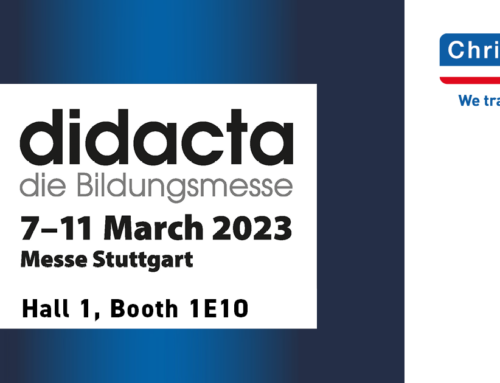Advantages and Challenges of a Digital Knowledge Audit with New Media
The 3rd Examination Hub in the Christiani MakerSpace
Transforming a classic written examination into a digital knowledge examination holds many opportunities in the area of dual training. This is one of the central results of the Christiani Examination Hub in the MakerSpace of Christiani in Landsberg/Lech on 23.11.2022.
In addition, the discussion clearly showed:
Stakeholders in dual training exchange ideas
The exchange among the experts made clear where Germany currently stands in terms of digital testing in vocational training. All the important stakeholders in dual training were represented: The Bavarian Ministry of Education and Cultural Affairs, vocational schools, chambers of industry and commerce, chambers of crafts, and companies.
Digital testing must not be an end in itself
The examination must do justice to the goal of dual training, which is to provide vocational skills at the end. In this respect, the examination must also provide an objective reflection of everyday working life in the company. This also means testing knowledge and competence.
Innovation and Gen Z orientation through new media
New media such as 3-D formats, videos, animations enable completely new types of tasks as well as exam questions – everyone agreed on that. At the same time, this also takes into account the learning behavior of the so-called Gen Z examinees – keyword user-friendliness. They are increasingly accustomed to acquiring their knowledge through digital media, especially learning videos.
Maintaining quality
When switching from analog to digital knowledge testing, quality must not suffer. Up to now, the examinations of IHKs and HWKs have been characterized by a high level of quality. In this respect, the future creation of digital tasks and the performance of the examination must also be measured against the usual quality criteria for examinations, such as objectivity, reliability and validity.
IT security of fundamental importance
The participants also agreed that, especially in times of increasing cyber attacks, the respective examination platforms must withstand the highest IT security standards.
Digital return on investment by relieving the burden on the auditor’s honorary office
On the basis of various task types, which Christiani exemplified, it became clear that a “digital return” would be possible through the increased use of task types that can be automatically evaluated in real time. This could significantly reduce the correction effort for examiners. At the same time, the know-how of the examiners is urgently needed in advance, in the assessment of the digital examination questions. In this respect, the role of examiners in the creation and correction will change, but will not lose its importance.
Overcome challenges and get going
Widely discussed was how to balance innovation (digital media, AI, etc.), affordability (effort to create), rapid implementation (amount of training occupations and new digital exam questions), and competency orientation of the exam, resulting in uniform frameworks among organizations. Result: This challenge can only be solved step by step. It is important to get started now – without wanting to be perfect in every respect – and to develop the digital examination step by step.
Many thanks for the valuable impulses!
Especially from
- Jessica Ibba, DIHK
- Anette Jacob, Central Technical Committee for Vocational Training in Printing and Media
- Jürgen Jarosch, Electrical Technology Center (ETZ) of the Stuttgart Guild
- Thomas Meyer, Stuttgart Chamber of Industry and Commerce
- Pankraz Männlein, Federal Association of Vocational Training Teachers (BvLB)
- Ferdinand Pinzer, Siemens Energy
- Christian Munz, Swabia Chamber of Industry and Commerce
- Hubert Schöffmann, Chamber of Industry and Commerce for Munich and Upper Bavaria
- Michael Scholze, HWK for Munich and Upper Bavaria
- Thomas Speck, Baden-Württemberg Vocational School Teachers’ Association (BLV)
- Sebastian Viehbeck, Bavarian State Ministry for Education and Cultural Affairs
- Anke Spatz, Government of Upper Bavaria
- Marco Krebold, Hilti GmbH Landsberg
